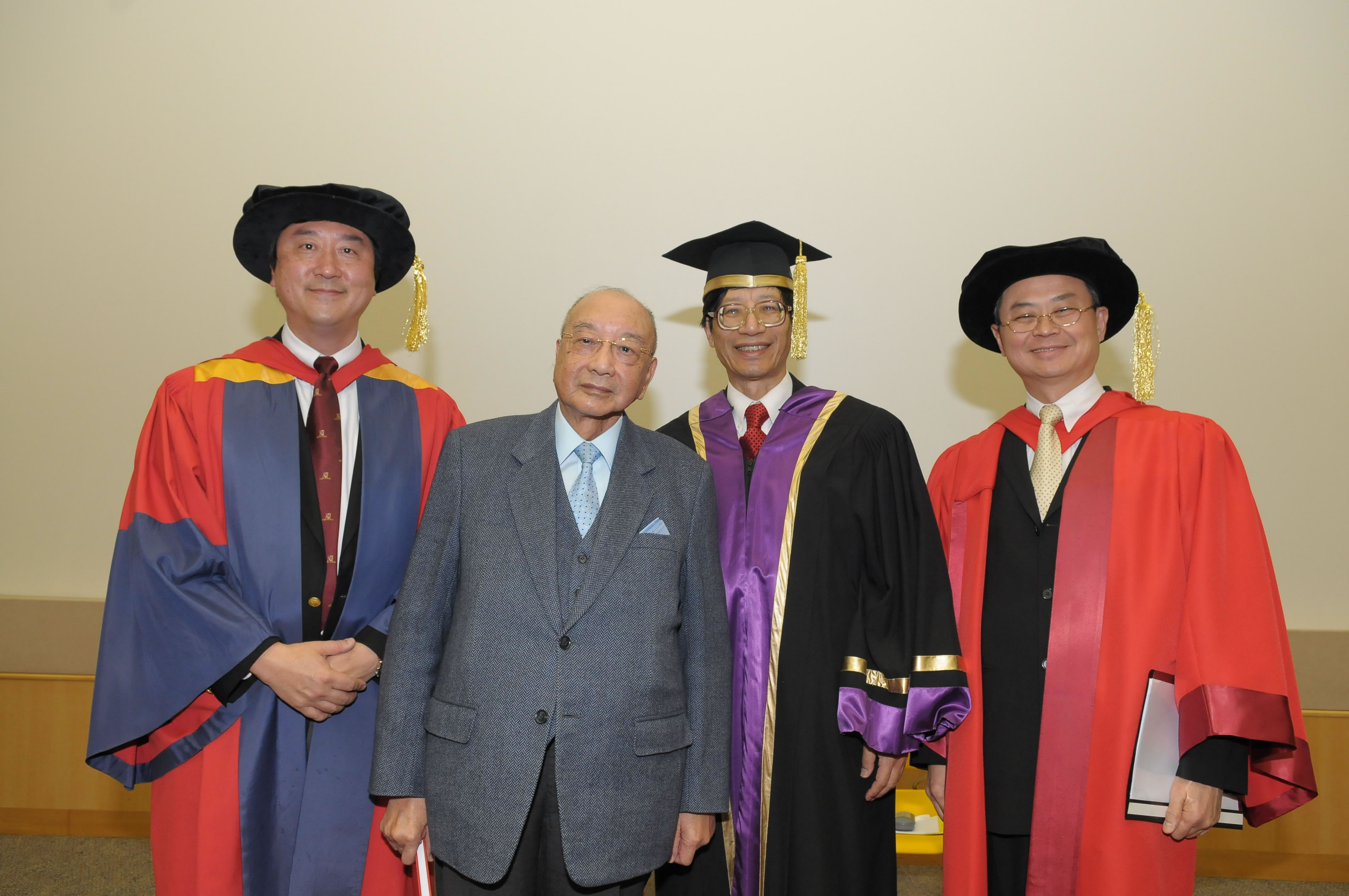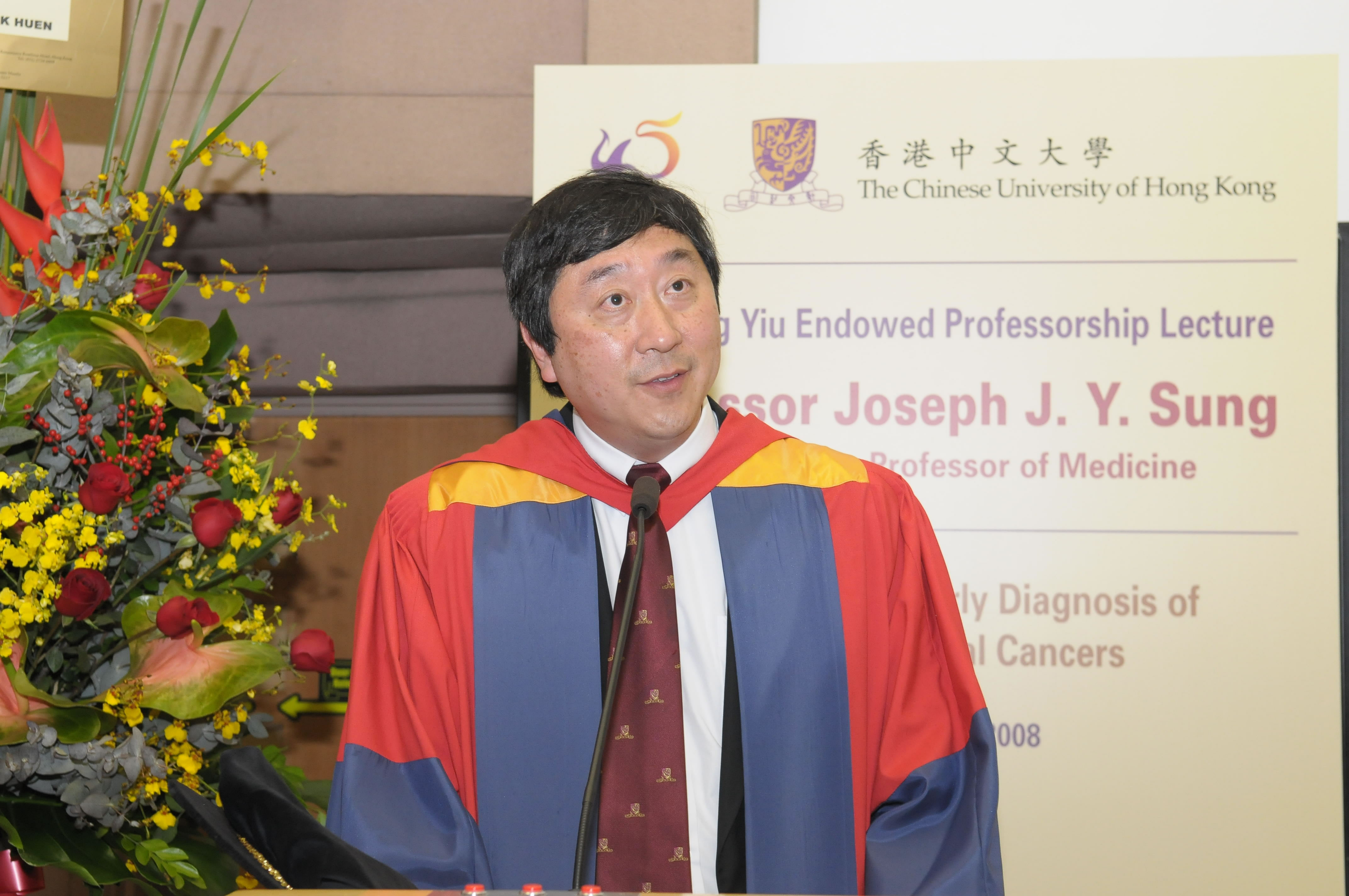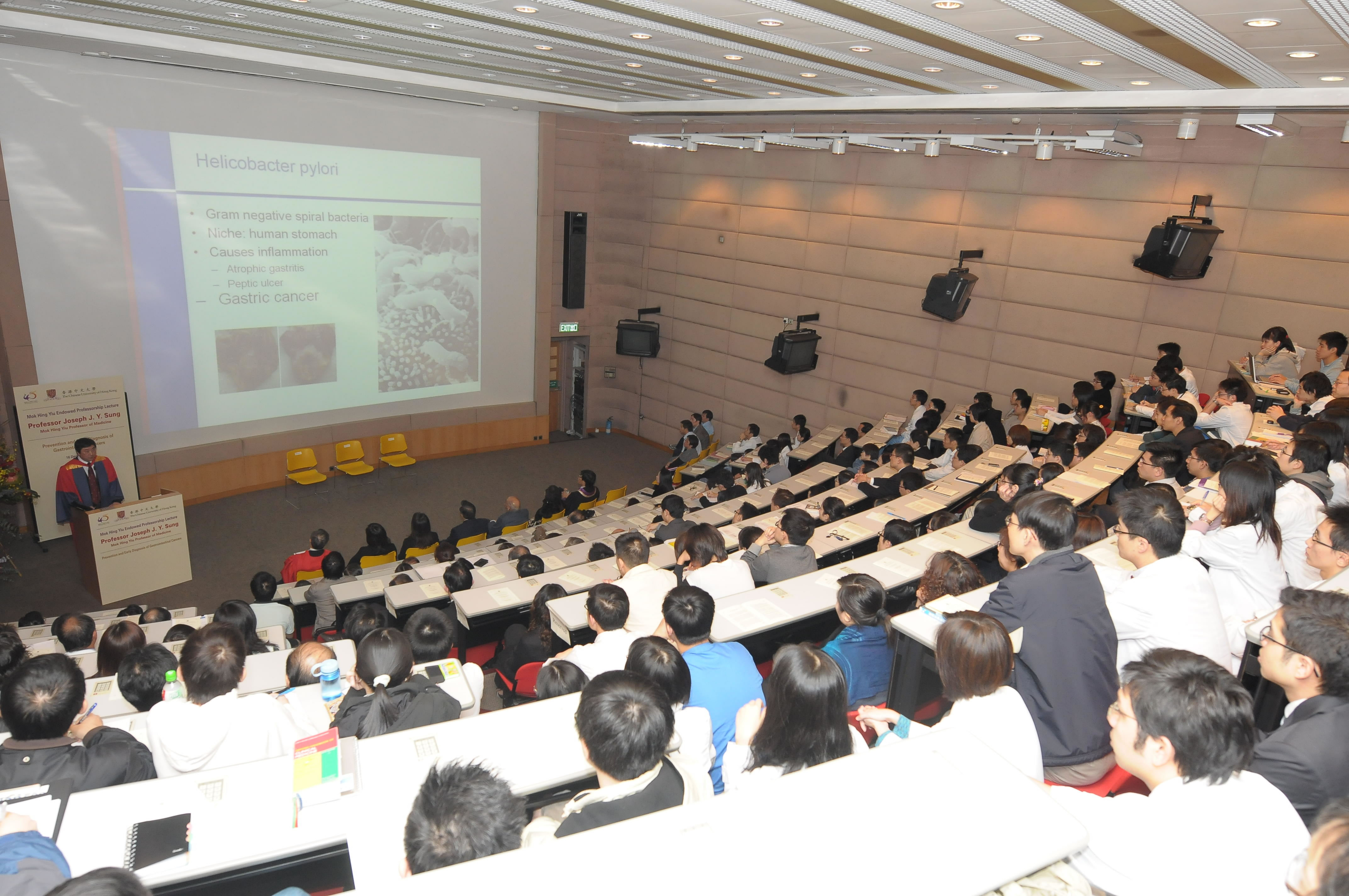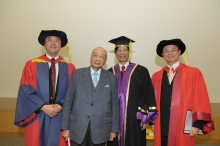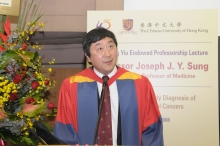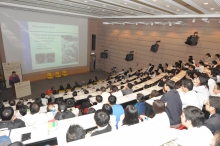CUHK
News Centre
The Mok Hing Yiu Endowed Professorship Lecture by Professor Joseph Sung
Professor Joseph J. Y. Sung, MD, PhD, Mok Hing Yiu Professor of Medicine, Associate Dean (General Affairs) of Medicine, Professor of Medicine and Therapeutics, and Head of Shaw College of The Chinese University of Hong Kong (CUHK) delivered his inaugural lecture of the Mok Hing Yiu Endowed Professorship today (16 December) on “Prevention and Early Diagnosis of Gastrointestinal Cancers”.
Gastrointestinal cancers are amongst the most common malignant diseases worldwide. Gastric cancer is still the second commonest cancer especially in Asia. Colorectal cancer, one of the most common cancers in the West, is rapidly emerging as the third most common cancer in Asia. Both gastric and colorectal cancers are actually preventable. Once established, the chance of cure is surgical resection which can only be done with early diagnosis.
H. pylori infection has been identified as an important trigger of gastric cancer. Professor Sung’s studies have found certain strains of H. pylori (cag-A and bab-A positive H. pylori) and certain subjects (IL-1β 511 polymorphism) are more susceptible to the development of gastric cancer. H. pylori infection leads to chronic inflammation which induces different mediators of inflammation including cyclooxygenase 2 that increases the invasiveness of gastric cancer. Professor Sung’s research team has used the proteomic approach and found that certain proteomes can make early diagnosis of gastric cancer possible. In a study conducted in a high-prevalence county in China in 2000, the research team has found that treatment of H. pylori can, to a certain degree, halt the development of gastric cancer.
Colorectal cancer is the second commonest cancer in both men and women in Hong Kong. There is ample evidence that screening and early diagnosis of adenomatous polyps can prevent colorectal cancer and reduce incidence as well as mortality. Colonoscopy in asymptomatic individuals in the community can pick up early cancer and advanced colonic neoplasm. Under the leadership of Professor Sung, the Institute of Digestive Disease of CUHK led a group of 15 Asian countries to conduct endoscopic screening and found that pre-malignant or early malignant lesions are equally common among Asians. Based on this endeavor, the Institute of Digestive Disease has drafted the first Asia Pacific Consensus Guideline on Colorectal Cancer screening (CRC) and has been using this to promulgate the concept of CRC screening. One of the obstacles to complying with CRC screening is the invasiveness of some screening modalities. Moreover, the testing stool for occult blood is inconvenient. The Institute of Digestive Disease is in the process of developing a blood test of detecting microRNA specific for the diagnosis of colorectal adenoma and colorectal cancer. Among 90 patients with colorectal cancer and 50 normal subjects, this test can discriminate colorectal cancer from normality with sensitivity of 85.5% and specificity of 80%. After surgery, the level of this microRNA is also found to be reduced. It is believed that this simple blood test holds promises for future development into an acceptable and convenient screening test for colorectal cancer.
About The Mok Hing Yiu Endowed Professorship
Dr Mok Hing Yiu established the Mok Hing Yiu Endowed Professorships in November 2007 to support professors from the Faculty of Medicine at The Chinese University of Hong Kong who are at the forefront of their respective fields of expertise. To date, two professors have been granted the Mok Hing Yiu Endowed Professorships, namely Professor Joseph J.Y. Sung and Professor Lawrence K.S. Wong from the Department of Medicine and Therapeutics. The University is grateful for the generosity of Dr Mok Hing Yiu. Through closer partnership between academia and the generous philanthropist Dr Mok Hing Yiu, the University will be able to make advances in teaching and research and also foster academic development.
From left: Professor Joseph J. Y. Sung, Dr Mok Hing Yiu, Professor Kenneth Young, Pro-Vice-Chancellor, CUHK, and Professor Fok Tai-fai, Dean, Faculty of Medicine, CUHK
Professor Joseph J. Y. Sung, MD, PhD, Mok Hing Yiu Professor of Medicine, Associate Dean (General Affairs) of Medicine, Professor of Medicine and Therapeutics, and Head of Shaw College, CUHK


